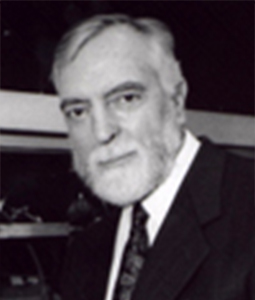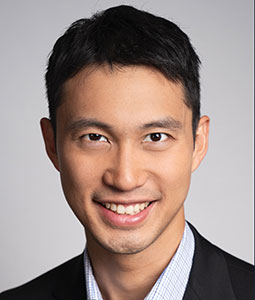Nominators must complete a nominee submission by September 30th each year with the following:
Statement of a specific contribution(s) that qualify Nominee for Award, as well as other related accomplishments. (Maximum of three pages)
Proposed Award Citation: (Word Count: 20)
Nominee’s curriculum vita (Maximum of three pages)
Endorsements: Three letters of endorsement are required. You may enter the endorsers name and email to send an automatically generated email request, or if you have received the endorsement, you can upload directly to the system. (One page limit)
The IEEE Photonics Society Young Investigator Award was established to honor an individual who has made outstanding technical contributions to photonics (broadly defined) prior to his or her 35th birthday.
Presented to: An individual
Scope: To recognize outstanding technical contributions to photonics (broadly defined) prior to the candidates 35th birthday.
Prize: A Certificate and Honorarium
Basis for judging: Candidates are rank-ordered by their qualifications and accomplishments, then discussed by recognized experts on the committee in order to arrive at a final decision.

We are proud to recognize and celebrate honorees of the IEEE Photonics Society Young Investigator Award.

For seminal work on bound states in the continuum in optics and for breakthroughs in computational electromagnetics and imaging.
Chia Wei (Wade) Hsu is an Assistant Professor of Electrical and Computer Engineering at the University of Southern California. He received his Ph.D. from Harvard University and was a postdoctoral fellow at Yale University. Wade’s interests span nanophotonics, wave propagation and imaging in scattering media, computational electromagnetics, inverse design, nonlinear laser dynamics, and non-Hermitian photonics. He was the recipient of the American Physical Society LeRoy Apker Award, National Science Foundation CAREER Award, Sony Faculty Innovation Award, Charles Lee Powell Faculty Research Award, and PIERS Young Scientist Award.
| Year | Award Winner | Description |
|---|---|---|
| 2023 | Lin Chang | For the development of highly nonlinear ultra-low loss photonic platforms |
| 2022 | Deep Jariwala | For breakthrough advances in optical characterization and understanding of light-matter coupling in excitonic and strongly-correlated semiconductors. |
| 2021 | Xi (Vivian) Chen | For outstanding contributions to high-speed and high-capacity fiber-optic communications. |
| 2020 | Mikhail Kats | For contributions in the fields of nanophotonics and optical materials, especially for metasurfaces, optics with phase-transition materials, and thermal-emission engineering. |
| 2019 | Junjie Yao | For pioneering novel photo-acoustic imaging that allows probing living tissue functions at unprecedented accuracy, sensitivity, and speed. |
| 2018 | Yu Shrike Zhang | For pioneering contributions in applying biophotonics to characterization of engineered tissue constructs. |
| 2017 | Hannah Joyce | For significant contributions to nanowire optoelectronics and terhertz spectroscopy. |
| 2016 | Igor Aharonovich | For contribution to the development of single photon emitters in wide bandgap materials. |
| 2015 | Jeremy N. Munday | For pioneering contributions to plasmonic and photonic light-trapping in solar cells. |
| 2014 | Ertugrul Cubukcu | For contributions to photonics beyond the diffraction limit with nanoantenna-based devices and sensors. |
| 2013 | Alexandra Boltasseva | For seminal contributions to the development of metal-dielectric waveguides for integrated optics and novel approaches for realization of nanoplasmonic devices. |
| 2012 | William Green | For contributions in CMOS integrable, highly scaled, Silicon Nano-Photonics, and pioneering Silicon Photonics for mid-infrared applications and non-linear-optics. |
| 2011 | Hatice Altug | For contributions on nanoplasmonics and integrated nanofluidics for biological sensing and spectroscopy. |
| 2010 | Sander Lars Jansen | For pioneering contributions in optical OFDM for fiber-optic transmission systems. |
| 2009 | Aydogan Ozcan | For his pioneering contributions to non-destructive non-linear material characterization techniques, near-field and on-chip imaging and diagnostic systems. |
| 2008 | Jose Azana | For pioneer contributions on innovative ultra-fast optical pulse processing techniques, particularly temporal self-imaging (Talbot) effects, using all-fiber grating technologies. |
| 2007 | Randy Bartels | For pioneering contributions to ultrafast molecular photonics and photonic reagent control of quantum systems on an unprecedented time-scale. |
© Copyright 2024 IEEE — All rights reserved. A not-for-profit organization, IEEE is the world’s largest technical professional organization dedicated to advancing technology for the benefit of humanity.